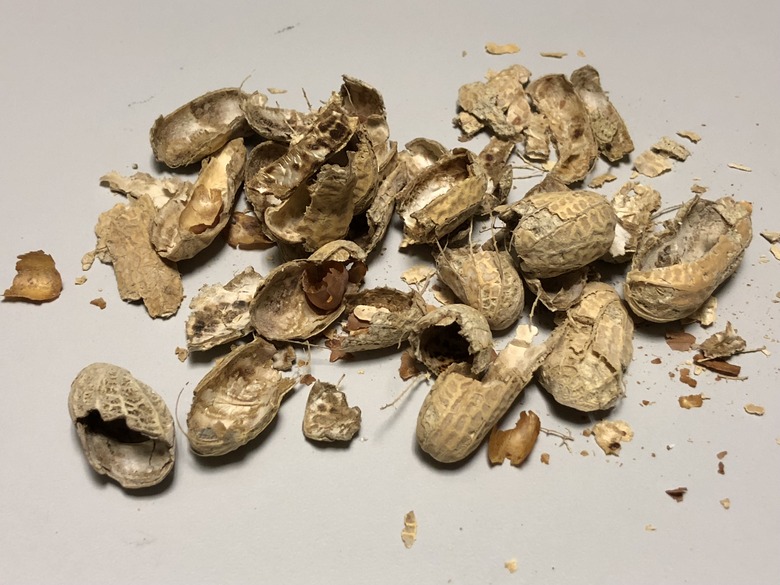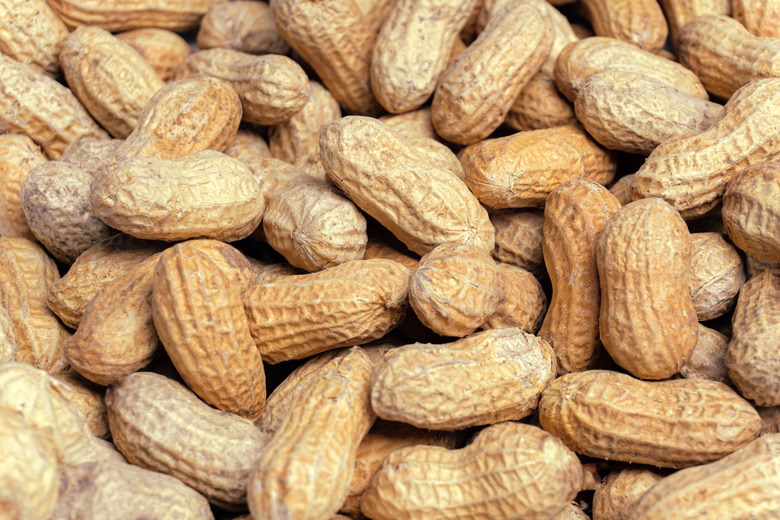Uses Of Peanut Shells: Household And Commercial
Peanuts at the ballgame. Peanuts in the car. Peanuts in your kid's lunchbox, as an after-school snack in front of the TV and maybe on an unmade bed, now full of peanut shells.
Given all the peanuts (Arachis hypogaea L.) consumed in the U.S., wouldn't it be great if peanut shells were edible, or if you could do something useful with them other than clean them off the table and sweep them into the trash?
They do have some uses. However, for most households, their reuse is limited, but first off—can you eat peanut shells?
Are Peanut Shells Edible?
While peanut shells, also called peanut hulls, are technically edible, you should not eat them for several reasons:
- **Peanut hulls may have residual insecticides:** Peanuts are susceptible to various pests and diseases, and commercial growers frequently use pesticides or herbicides on this crop. While the peanuts themselves won't have been sprayed directly, the shells are affected by a pest control program.
- **Peanut hulls are hard to digest:** Consider peanut shells' sharp, dry texture and imagine not only trying to chew them up but also digesting them. For example, one study published in the Archives of Internal Medicine reported "peanut shell colitis" in a patient who had eaten whole peanuts, including the shell.
- **Peanut shells have no nutritive value:** Other than dietary fiber, peanut shells provide no value. No reputable sources in an internet search could be found to verify the specific nutritional statistics of peanut shells. Many stories point to the National Peanut Board as the source, although the peanut board no longer publishes nutritional data on peanut shells, perhaps for a good reason.
Warning
Though peanut shells are technically edible, they are hard to digest and may have residual insecticides. Thus, it is not advised to consume them.
Home Uses for Peanut Shells
There aren't many practical uses for peanut shells in a typical household, but here are some you can try.
Peanut Shell Cat Litter
Several commercially available kitty litter products feature peanut shells, and the Peanut Board touts that making kitty litter is a good way to use peanut shells. Preparing them for kitty litter use is, however, somewhat time-consuming. Here's how:
1. Soak them in water with biodegradable dish soap. 2. Dry them well. 3. Sprinkle them with baking soda.
If you have the time and inclination, using peanut shells instead of standard kitty litter is undoubtedly better for the environment than the chemically treated variety.
Warning
Some peanut enthusiasts—including the National Peanut Board—recommend amending compost with peanut shells, but experts, including the University of Florida Extension, warn against this because peanut shells can harbor fungal diseases.
'Packing Peanut' Shells
Although somewhat messy, real peanut shells can be used in lieu of styrofoam packing peanuts. You'll need a lot of them, but maybe you and your family eat a lot of peanuts!
Peanut Shells Instead of Salt on Sidewalks
Their scratchy and rough edges make them a good substitute for salt when your walkways and driveway are covered in ice. However, like salt, you can easily track these fragments into the house, so get ready to bring out your broom.
Peanut Shells as Kindling
Peanut shells are highly flammable; they are used to make some manufactured fireplace logs. If you have a wood-burning stove or fireplace, sprinkle the shells under and over the wood to get a good blaze going quickly.
Commercial Uses for Peanut Shells
- Several scientific studies have been done or are underway to see if peanut shells can be used in manufacturing in a range of applications, motivated by the fact that about 500,000 tons of peanut hulls are produced in the peanut-producing U.S. states each year, according to an article in ScienceDirect.
- When pelleted to make them more efficient to handle and transport, they can be used in biofuel processes, for instance. They can be a component of biochar, a cleaner substitute for charcoal.
- In the agriculture industry, they have a number of potential uses. Their use as a filler for fertilizer has been studied. They can be used for poultry litter in egg production facilities.
- Some researchers are pushing the envelope for possible peanut hull use. For example, a graduate student at West Carolina University studied peanut shell use in water filtration.
Of course, none of these applications have direct relevance to a typical U.S. household, but it's good to know that all those peanut hulls might be put to good use!

